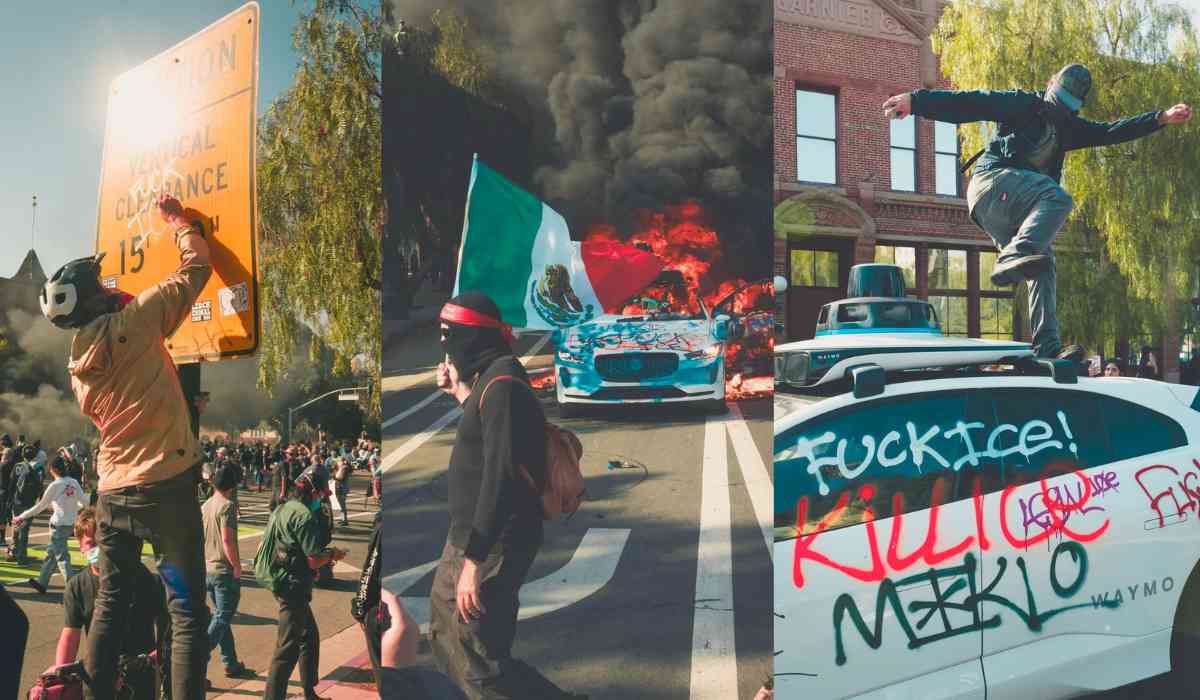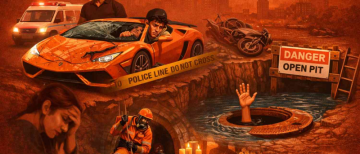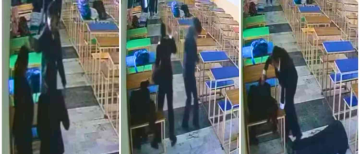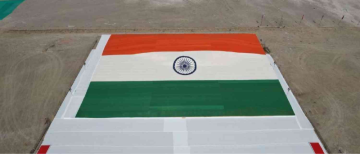Los Angeles is witnessing its fourth day of large-scale protests, sparked by recent immigration raids, as President Donald Trump orders a major military deployment to the city. The decision to send 700 active-duty Marines and an additional 2,000 National Guard troops has drawn sharp criticism from California Governor Gavin Newsom, who labeled the move “deranged” and “reckless”.
What’s Happening in Los Angeles?
_1749533508.png)
The protests began last Friday after federal immigration authorities arrested over 40 people in coordinated workplace raids across Los Angeles. Demonstrators quickly gathered outside a federal detention center, demanding the release of those detained. Over the weekend, the protests grew, with thousands rallying at City Hall and hundreds more outside federal buildings. While most demonstrations have remained peaceful, some incidents of property damage and confrontations with police have occurred, including cars set on fire and brief shutdowns of major freeways.
Trump’s Military Response
_1749533064.png)
President Trump responded by mobilizing 2,000 National Guard members to Los Angeles on Saturday, with about 300 quickly taking up positions to protect federal buildings. On Monday, the Pentagon announced the deployment of 700 Marines from the 2nd Battalion, 7th Marines, based at Twentynine Palms in Southern California. Their stated mission is to support the National Guard in protecting federal property and personnel, especially immigration agents, but they are not authorized to enforce law or make arrests unless the Insurrection Act is invoked.
The deployment of active-duty military personnel in a civilian setting is rare and signals a significant escalation in the federal response to civil unrest. According to US Northern Command, the Marines will enhance the presence of the National Guard and ensure enough personnel are available to maintain order and protect federal interests.
Governor Newsom and California Officials Push Back

Governor Gavin Newsom has strongly condemned the federal deployment, calling it “disrespectful to our troops” and accusing President Trump of trying to “provoke chaos by sending 4,000 soldiers onto American soil”. Newsom argues that the move is not about public safety but about “stroking a dangerous President’s ego”. California’s Attorney General Rob Bonta announced a lawsuit against the Trump administration, claiming the president has overstepped his authority by mobilizing the state’s National Guard without state approval.
Los Angeles Police Chief Jim McDonnell also expressed concern, noting that the arrival of Marines without coordination with local police creates “significant logistical and operational challenges”.
Why Are People Protesting?
_1749532927.png)
The central issue driving the protests is the Trump administration’s aggressive immigration enforcement, especially the recent raids and detentions. Protesters argue that these actions separate families and target vulnerable communities. Many demonstrators are calling for the release of detainees and an end to mass deportations.
The Bigger Picture: Federal vs. State Authority
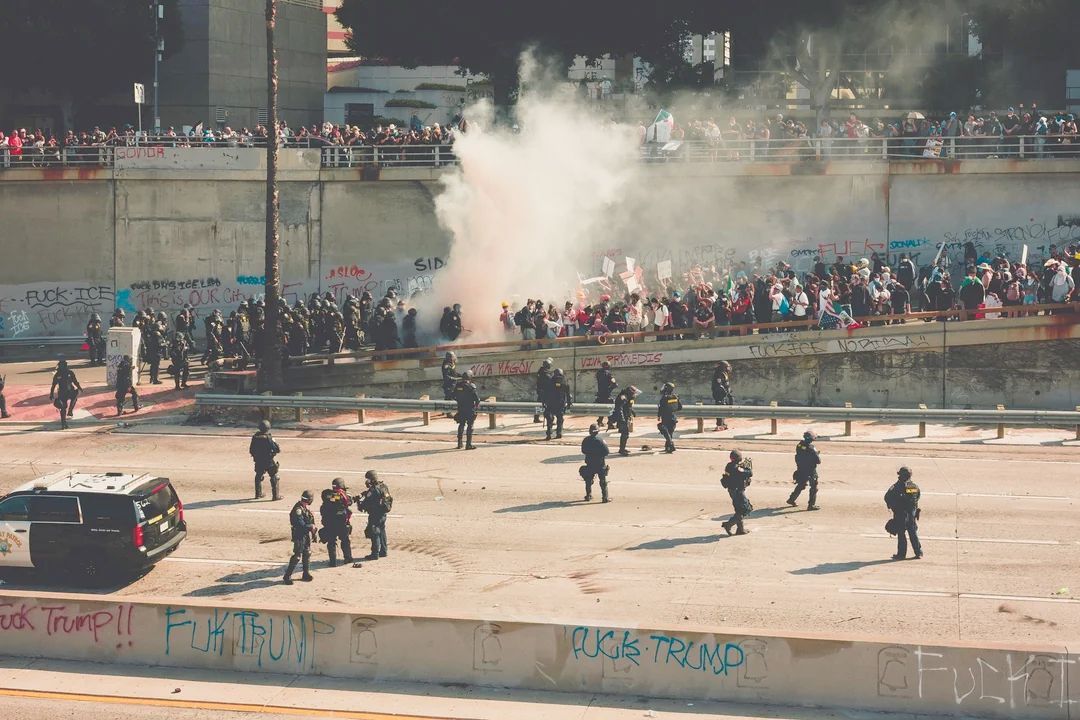
This situation highlights a growing tension between federal and state governments over the use of military force in domestic affairs. While the president has the power to deploy federal troops under certain circumstances, such actions are controversial—especially when done without the consent of state officials. Legal experts note that unless the Insurrection Act is invoked, active-duty military cannot perform law enforcement duties, raising questions about the scope and legality of their deployment.
What’s Next for LA?
As of now, the protests continue, with thousands of people demonstrating peacefully and a heavy security presence throughout the city. It remains unclear how long the military deployment will last or if further escalation will occur. Both sides—federal and state—are digging in, with legal battles looming and public debate intensifying.
A City at a Crossroads
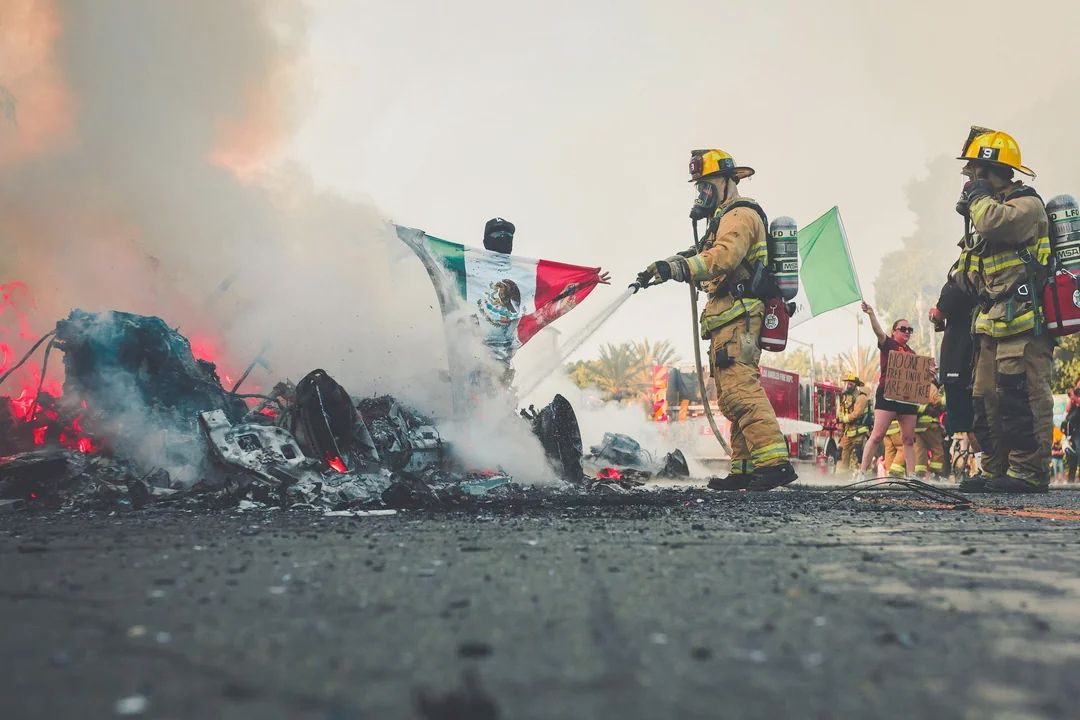
The events in Los Angeles reflect deep divisions in American society over immigration, the role of the military, and the balance of power between state and federal governments. For many residents, the sight of Marines and National Guard troops on city streets is unsettling and raises questions about civil liberties and the right to protest. For others, the deployment is seen as necessary to restore order and protect federal property.
In the days ahead, how leaders respond—and how protesters and law enforcement interact—will shape not only the future of Los Angeles but also the national conversation about protest, authority, and democracy in America.
With inputs from agencies
Image Source: u/stillyouboudoir
© Copyright 2025. All Rights Reserved Powered by Vygr Media.

